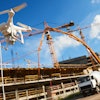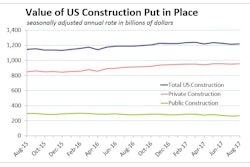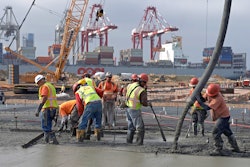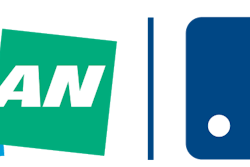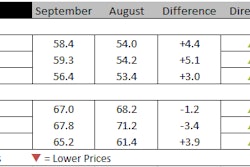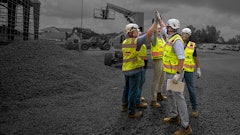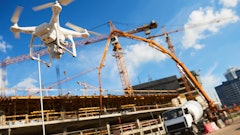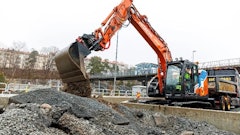U.S. Transportation Secretary Elaine Chao told state officials and industry professionals that Congress will probably not begin to address the Trump administration's long-awaited infrastructure investment ideas until after lawmakers deal with tax reform.
"The congressional legislative calendar is really packed for the rest of the year, so tax reform will come first," said Chao. "So the infrastructure proposal will probably not be taken up until tax reform is being considered."
Chao made the comments Sept. 27 in a speech to the annual meeting in Phoenix of the American Association of State Highway and Transportation Officials.
While various administration officials have previously said they want Congress to tackle infrastructure after tax legislation, Trump officials had earlier said they expected to unveil many parts of their investment proposal by now.
However, the industry is still waiting for key details on how the administration would award funds for projects, and how it would pay for them. The administration so far has said it would rely heavily on private investment and state or local funding to cover most of the cost of a 10-year, $1 trillion investment plan that would use only $200 billion in direct federal funds.
Chao addresses the AASHTO annual meeting Sept. 27.
Chao said that the administration is still working on its plan. "The principles have been announced, and the details are currently being worked out," she told the AASHTO group.
President Trump, meanwhile, set off reports that he may be shifting on a key element.
While administration officials have repeatedly said they expect to reward public-private partnerships more aggressively to woo more private investment in projects, Trump in meeting on tax reform with a bipartisan delegation from the House Ways and Means Committee reportedly said such P3s are "more trouble than they're worth."
In addition, some Washington observers and industry groups continue to say Congress should use tax reform to also carve out more revenue for the Highway Trust Fund, to put the nation's prime infrastructure investment account on a sustainable footing. (See related story in Nation.)
Currently, the trust fund is on course to run out of money in 2020, when a five-year funding measure expires.
Chao in speaking to AASHTO said that despite the delay in the infrastructure package, the Department of Transportation is making funds available through the its two main discretionary grant programs – the TIGER grant program for a wide array of infrastructure projects and the INFRA program in the Highway Trust Fund that is largely for projects in major freight corridors.
Chao also said the USDOT continues making regulatory reforms aimed at improving the delivery of transportation projects.
For instance, she said the USDOT has introduced changes to rules that would allow the Federal Railroad Administration to use the same streamlined project review process that is already used by the Federal Highway Administration and Federal Transit Administration.
"This will harmonize the rules in the department's critical surface transportation administration," said Chao, who added that the updated rule also proposes to exempt most concrete and steel bridges built after 1945 from historic preservation review.
She said new USDOT guidance will also allow federal modal agencies to recognize "categorical exclusions" – covering various project activities that do require new, in-depth prior reviews – that are given by other modal agencies on multimodal projects.
"One DOT agency can now use the categorical exclusion of another DOT sister agency for multimodal projects," Chao said.
She also noted that the USDOT recently allowed new flexibility for states to use federal safety funds to pay for work-site safety equipment.
And Chao said the USDOT recognizes the need to begin environmental reviews on projects even before the project has a completed funding plan. "We have heard your concerns, and are currently evaluating our policy regarding fiscal constraint and the environmental process," she told the AASHTO audience.
Chao summed up: "We need at the Department of Transportation to take the lead in facilitating and ensuring that construction goes forward so that we have a better infrastructure for our country that boosts our competitiveness, that increases our productivity and ensures the quality of life for all those who live within our borders are indeed enhanced."

